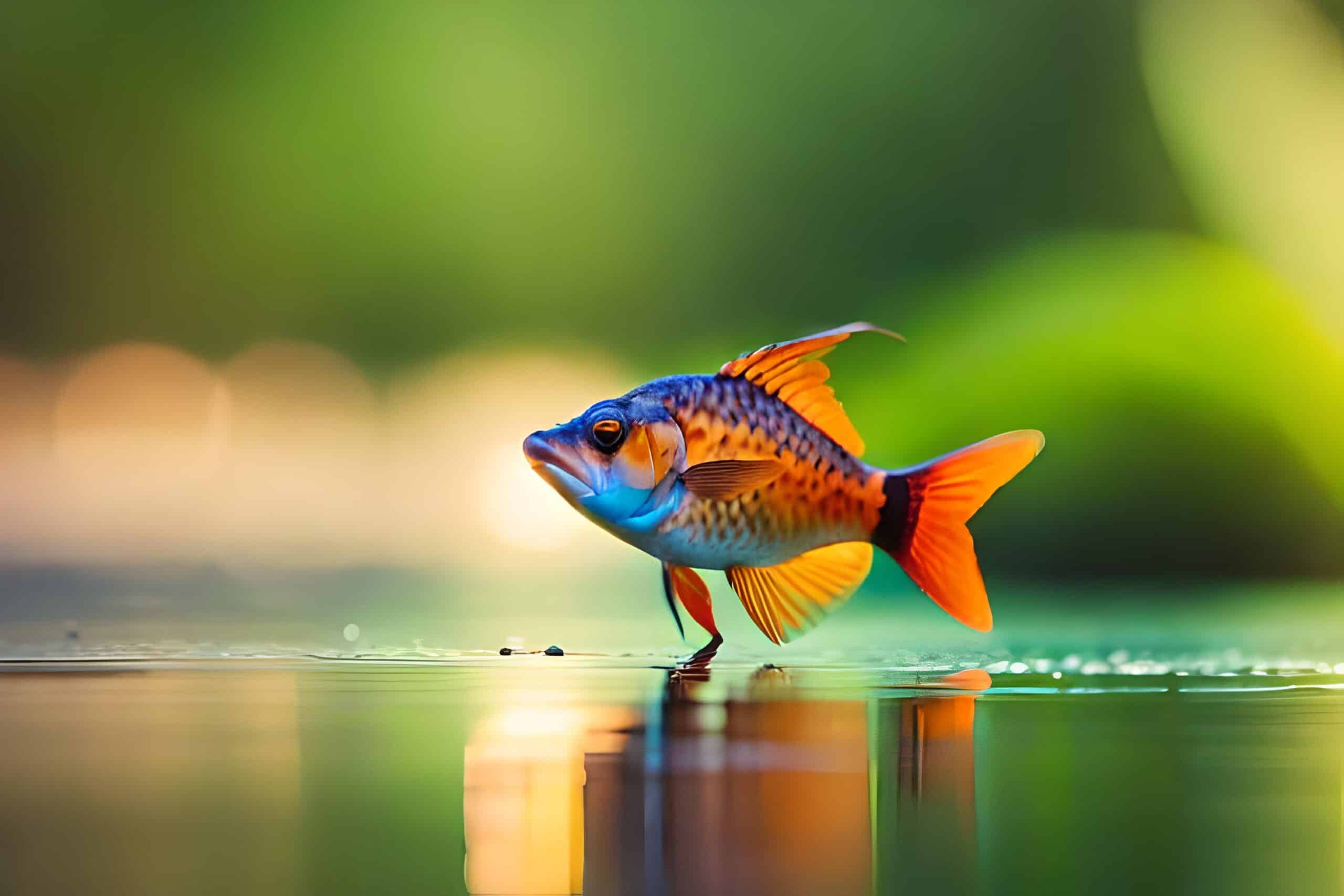Do Fish Care About Weather?
Key Takeaways
- Weather conditions such as temperature, barometric pressure, wind, and precipitation can significantly impact fish behavior, activity levels, and feeding patterns.
- Temperature plays a crucial role in fish behavior, with warmer water temperatures increasing fish activity and feeding tendencies, while colder water temperatures can slow down fish metabolism and reduce their activity levels.
- Barometric pressure and wind patterns also influence fish behavior, with falling barometric pressure signaling to fish that a storm or change in weather is approaching and wind creating currents in the water that trigger feeding activity.
Yes, fish do care about weather. Different weather conditions can have a significant impact on fish behavior, activity levels, and feeding patterns. Weather patterns such as temperature, barometric pressure, wind, and precipitation can all influence fish behavior in various ways. Understanding how weather affects fish can be valuable knowledge for anglers and fishing enthusiasts. Let’s explore the different ways weather can influence fish behavior.
Temperature and Fish Activity
Temperature plays a crucial role in fish behavior. Warmer water temperatures tend to increase fish activity and feeding tendencies. When the water is warmer, fish metabolism speeds up, and they become more active in search of food. On the other hand, colder water temperatures can slow down fish metabolism and reduce their activity levels. Fish may become more sluggish in cold weather, making them less likely to bite.
For example, during the hot summer months, fish like bass and carp may go deeper into cooler waters to find relief from the heat. They become more listless and less active on sunny days. In contrast, during winter, bass and carp tend to stay near the surface and are more active, while other fish species go deeper.
Barometric Pressure and Fish Behavior
Barometric pressure, also known as atmospheric pressure, can have a significant impact on fish behavior. Fish have an organ called a swim bladder, which helps them control their buoyancy. This swim bladder is sensitive to changes in barometric pressure.
When there is a low-pressure system, fish tend to be more active and feed more aggressively. Falling barometric pressure signals to fish that a storm or change in weather is approaching. They take advantage of this time to feed before the conditions become unfavorable. In contrast, high-pressure systems can be less productive for fishing, as fish become less active and less willing to bite.
Wind and Fish Feeding Activity
Wind patterns can also influence fish behavior, particularly their feeding activity. Wind creates currents in the water and stirs up prey species, triggering feeding activity in fish. During windy days, small bait fish and insects are often pushed towards the banks. This phenomenon attracts predator fish like bass, which come closer to the banks to take advantage of the abundant food source.
Precipitation and Water Conditions
Precipitation events like rain can impact fish behavior by changing water levels, flow rates, and water clarity. Rainfall can cause rivers and lakes to rise, leading to changes in the fish’s habitat. Some fish, like trout and sunfish, become more active and bite more during rainy weather. This is because insects are knocked into the water, providing a readily available food source.
On the other hand, heavy rainfall can sometimes lead to increased turbidity and reduced water clarity. In such conditions, fish may become more cautious and less likely to bite. However, after periods of rain, when the water begins to stabilize and clear up, fishing can become more productive as fish regain their confidence in feeding.
Conclusion
It is clear that weather has a significant impact on fish behavior. Temperature, barometric pressure, wind, and precipitation can all influence fish activity levels, feeding patterns, and preferred locations. Understanding how fish respond to different weather conditions can greatly enhance an angler’s chances of success. By adapting fishing strategies to match the prevailing weather conditions, anglers can improve their overall fishing experience.
Related Websites:
FAQs:
Q: Why is weather important for fishing?
Weather conditions have a significant impact on fish behavior, influencing their feeding patterns, movement, and habitat selection. Understanding how weather factors affect fish can help anglers increase their chances of a successful fishing trip.
Q: How does temperature affect fish behavior?
Fish are ectothermic, meaning their body temperature is regulated by the surrounding environment. Changes in temperature directly impact fish metabolism, activity levels, and feeding patterns. It is crucial to consider water temperature when fishing to understand where fish might be located and how active they are likely to be.
Q: Do fish react to changes in air pressure?
Fish can sense changes in air pressure, and variations in air pressure affect their movement and behavior. High or low air pressure conditions can influence fish activity, making them more or less active. Understanding these variations can help anglers adjust their fishing techniques accordingly.
Q: How does wind impact fish activity?
Wind affects water movement and oxygenation, which in turn influences fish behavior. Changes in water current caused by wind can prompt fish to change their feeding patterns and habitat selection. Being aware of wind conditions can assist anglers in identifying productive fishing spots.
Q: What is the impact of precipitation on fish?
Rainfall affects fish behavior and feeding. Water clarity can be influenced by precipitation, and fish may respond differently to varying levels of water clarity. Understanding how fish activity can vary during different intensities of rain can help anglers determine the most suitable fishing techniques and locations.






